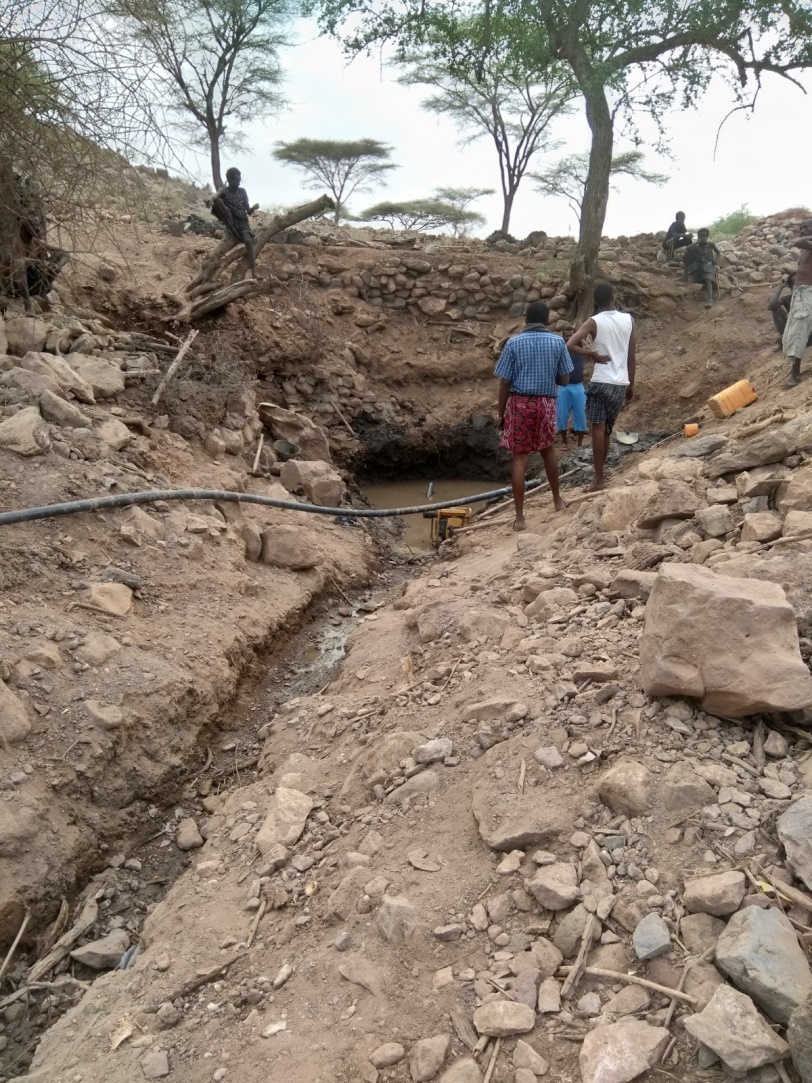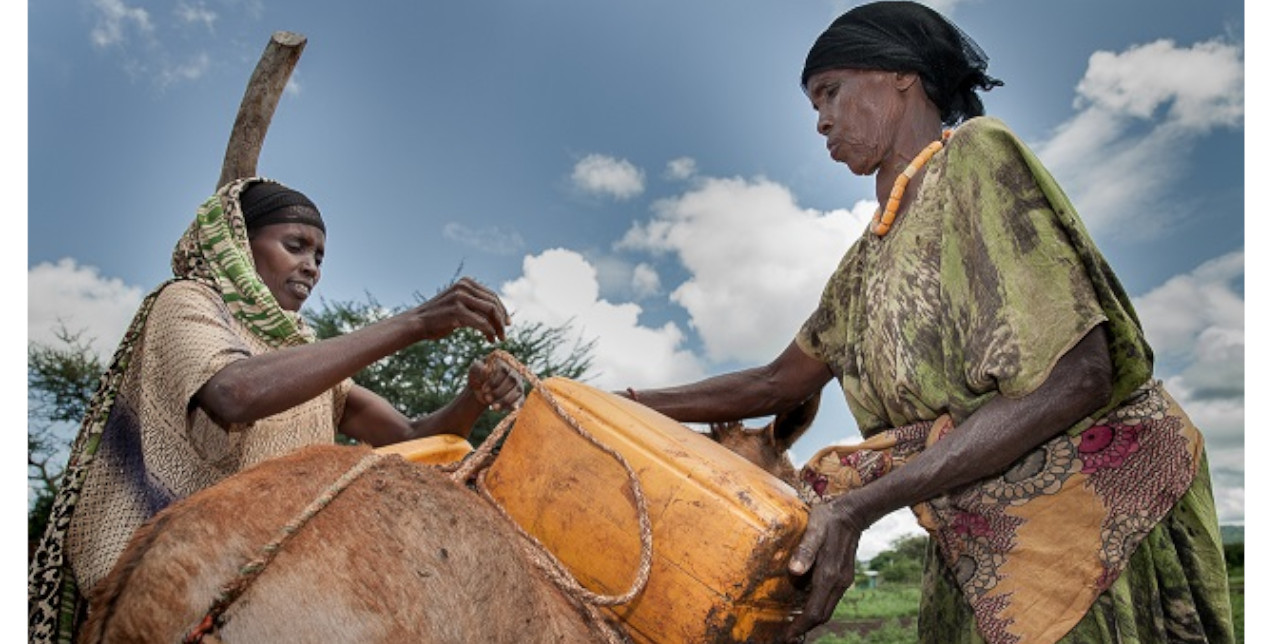30-09-2019 | di COOPI
Joint forces to rehabilitate the spring of Adu Kebele
In the woreda of Megale, in zone 2 of the region of Afar, Ethiopia, we are continuing to rehabilitate the spring of Adu Kebele, the only source of water used by the local and neighbouring population, used for livestock as well.
As Fabio Castronovo, COOPI Project Leader in Afar, points out: "beneficiaries, supported by COOPI technical staff, have completed the excavation of the spring and the drainage trench that will serve as a base for the construction of a 20m3 reservoir ".
To restore the contaminated water of the spring, the rehabilitation process involves an excavation of at least 2.5m, so as to adequately capture the groundwater and increase its flow rate, along with a cover with selected material, in order to eliminate the contaminated groundwater and make the water safe again.
In order to do so, we are focusing on a participatory approach, encouraging the participation of communities, as a crucial aspect in the project implementation.

Work in progress at the Adu Kebele spring
Castronovo continues, "beneficiaries have shown great commitment, especially considering they are primarily shepherds and have no knowledge, theoretical or practical, on hydraulic techniques.”
In general, out of a total of about 51,000 direct beneficiaries of the project "Integrated approach to strengthen the resilience of drought-affected populations in zones 1, 2 and 5 of the Afar Region" funded by the Italian Agency for Development Cooperation (AICS) and which will end in December 2019, about 800 people (433 men, 367 women) of the woreda of Megale will benefit from the rehabilitation of the spring.
Among the specific objectives of the project, last August our hygiene expert carried out awareness sessions in the woreda of Megale - local trainers organized theatre sessions to convey in a simple and universal language good hygiene practices. Awareness-raising activities for hygienic practices in the villages are addressed to at least 60% (8,430 people) of the beneficiaries of the water activities, with particular attention paid to women, especially those with children under 5 years of age.
Alongside other hygiene-related activities, the study on the recycling of plastic was also completed, agreeing with representatives of the six Woreda involved the site of installation of a press, with a view to strengthening basic services, such as water and hygiene, and the management of natural resources and environmental protection, to increase the resilience of rural and peri-urban communities, affected by extreme climatic phenomena in the Afar region.
Photo credits: Coralie Maneri




 Ethiopia
Ethiopia